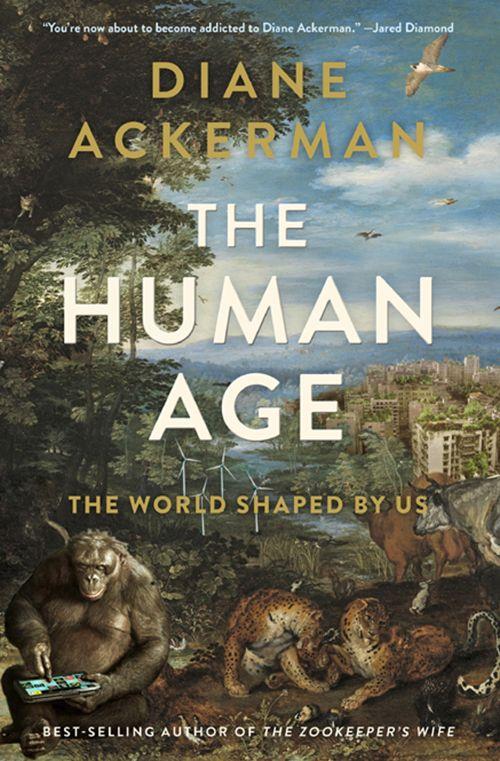
The Human Age
The World Shaped By Us
کتاب های مرتبط
- اطلاعات
- نقد و بررسی
- دیدگاه کاربران
نقد و بررسی

Starred review from July 14, 2014
Ackerman (One Hundred Names for Love) addresses a currently vogue topic, the Anthropocene—the geologic age humans have shaped by altering the world’s ecosystems—and in doing so raises the bar for her peers. “We’ve subdued 75 percent of the land surface,” Ackerman points out, “preserving some pockets as ‘wilderness,’ denaturing vast tracts for our businesses and homes, and homogenizing a third of the world’s ice-free land through farming.” Yet in the face of massive changes that have “created some planetary chaos that threatens our well-being,” she finds hope. Ackerman views the efforts of the tiny, deluge-prone Indian Ocean nation of the Maldives to be carbon neutral by 2020 as “a model for changes radical enough to help fix the climate.” Her critical eye focuses on changes at the human as well as the global level: “Anthropocene engineering has penetrated the world of medicine and biology, revolutionizing how we view the body.” The greatest strength of her work, though, is the beauty of her language, the power of her metaphors, and the utterly compelling nature of her examples. Whether Ackerman is writing about an iPad-using orangutan or Polynesian snails whose “interiors belong in a church designed by Gaudí,” her penetrating insight is a joy to behold. Agent: Suzanne Gluck, William Morris Endeavor.

September 15, 2014
Ackerman, author of literary discussions of science and nature, including Dawn Light and Natural History of the Senses, has taken on the Anthropocene (Age of Man), the term for the current geologic epoch popularized by Nobel Laureate Paul Crutzen in 2000. Ackerman describes how our world has changed because of our choices and actions and how this, in turn, has changed us, and optimistically asks how we can change our path and our world for the better. Very literate chapters describe a variety of topics, such as living buildings, blurring the indoor and outdoor, apes using computers, world changes in weather, robotics, and DNA. The material includes approachable examples--climate change in the author's own backyard, for example. Ackerman only lightly covers most of the science but she writes so well that the book will spark readers' interest in examining further what humans are doing. Elizabeth Kolbert's recent The Sixth Extinction has more science but Ackerman is a lighter read. VERDICT Patrons interested in environment, climate change, or endangered species will appreciate this title. [See Prepub Alert, 3/17/14.]--Jean E. Crampon, Univ. of Southern California, Los Angeles, Lib.
Copyright 2014 Library Journal, LLC Used with permission.

























دیدگاه کاربران